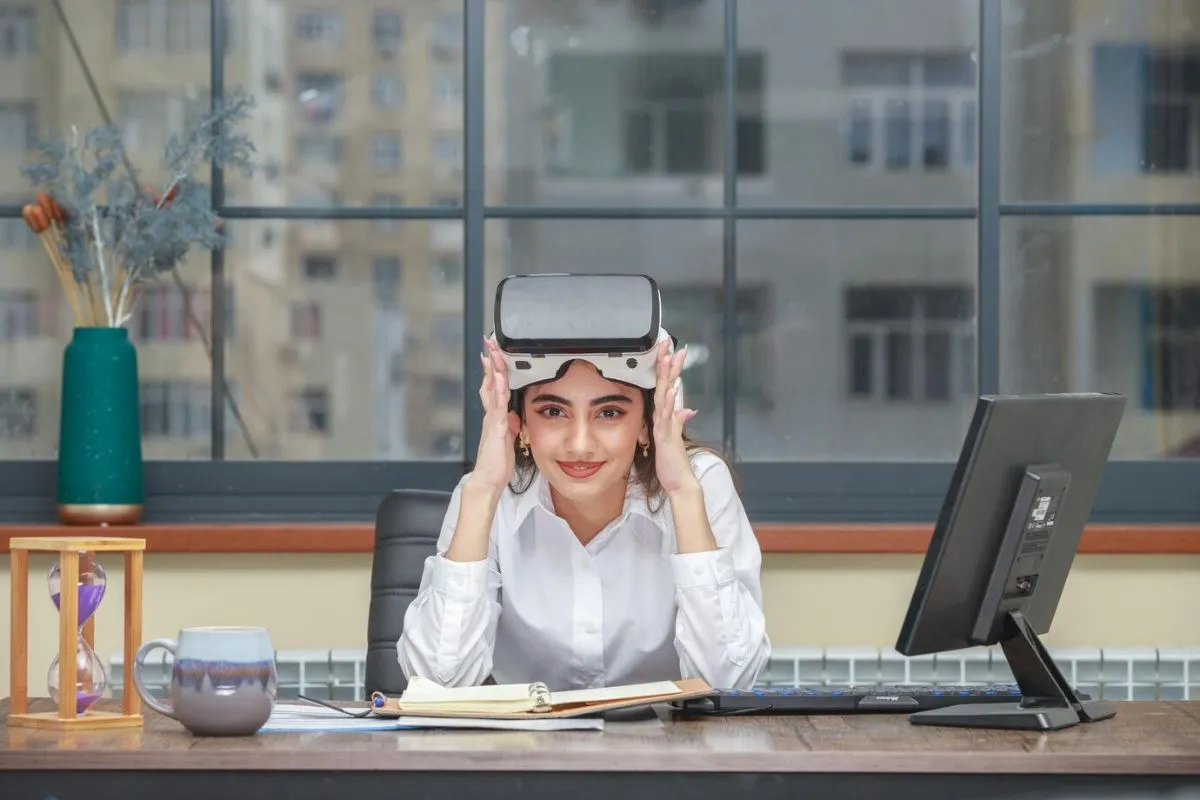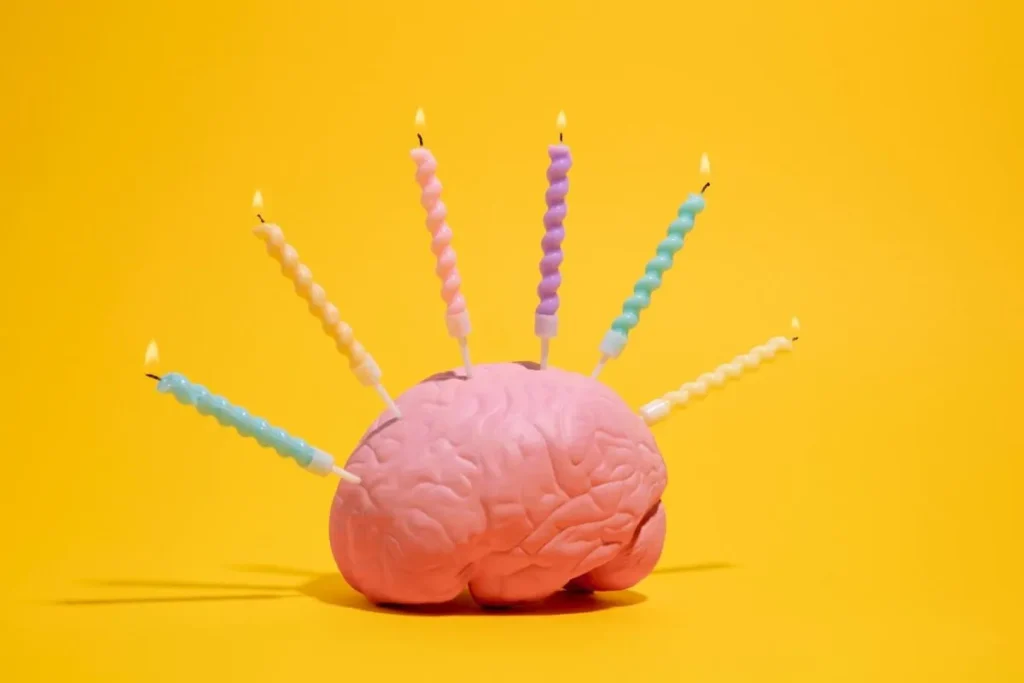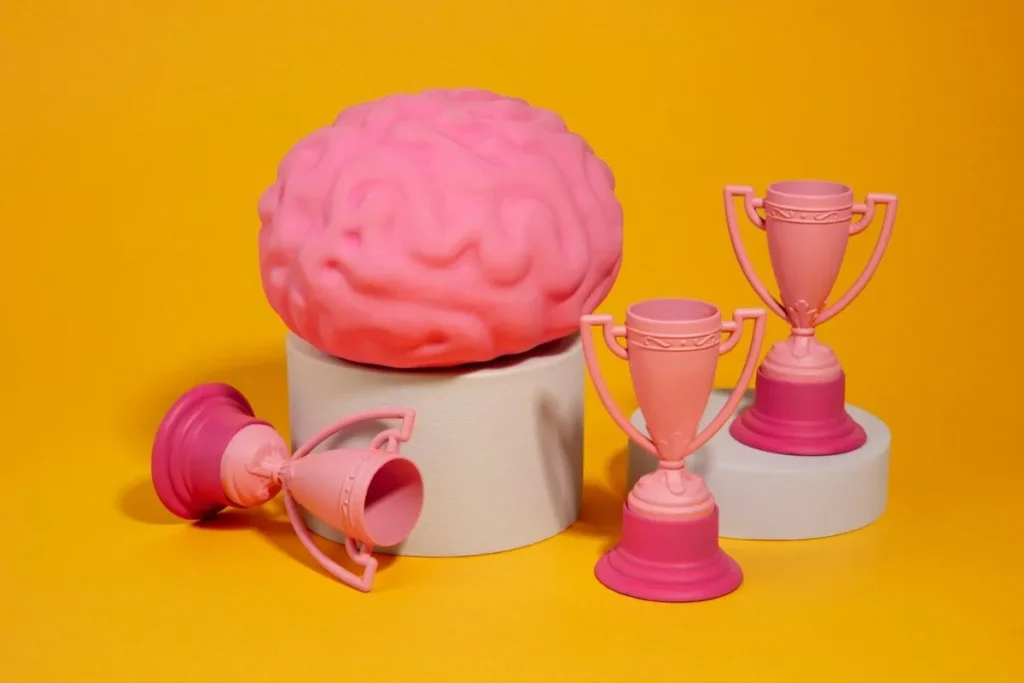Neurotech for Personal Productivity is revolutionizing how we approach our daily routines and goals. By leveraging neurotechnology, individuals can enhance concentration and efficiency.
Integrating neurotech into personal productivity practices is becoming increasingly popular. This approach tailors technology to optimize brain function.
Let’s dive into how neurotech can transform your productivity and support personal development. Understanding this can help achieve your learning and development goals.
The Role of Neurotech in Enhancing Productivity
Neurotech plays a vital role in improving productivity by directly influencing how our brain functions. Technology designed to enhance brain performance is increasingly accessible.
One key aspect of neurotech is brain stimulation. Devices that promote brain activity can improve focus and concentration. This allows for more efficient task management.
Additionally, neurotech can aid in stress management. By reducing stress, individuals can maintain better mental clarity and sustain higher levels of productivity.
Brain Stimulation Devices
Brain stimulation devices like tDCS (transcranial Direct Current Stimulation) are becoming popular. These devices use electrical currents to stimulate brain areas associated with focus and learning.
Studies show that tDCS can enhance cognitive function. This is particularly beneficial in environments requiring high levels of concentration.
By integrating these devices into daily routines, users can notice significant improvements in their productivity and efficiency.
Neurofeedback Training
Neurofeedback training is another powerful tool. This technique measures brain waves and provides real-time feedback. Users learn to control their brain activity.
This ability to self-regulate brain functions leads to improved concentration. It can also reduce symptoms of anxiety and depression, which often hinder productivity.
Neurofeedback can be incorporated into personal development plans to achieve targeted productivity goals.
Maximizing Efficiency with Routine Processes
Establishing efficient routines is essential for maximizing productivity. Neurotech can assist in creating and maintaining these routines.
Smart scheduling apps powered by neurotech can optimize your day. These apps analyze your cognitive peaks and align tasks for maximum efficiency.
Incorporating regular breaks using timers can improve focus. Neurotech can also remind you when it’s time to take a mental break to avoid burnout.
Optimized Scheduling
Apps like Brain.fm use algorithms to suggest task schedules based on your brain’s optimal performance times. This personalized approach ensures peak productivity.
These applications adjust to your evolving routines and productivity patterns. They provide recommendations to keep you on track with your goals.
Optimized scheduling enhances both personal and professional productivity by aligning tasks with your most alert and focused times of the day.
Importance of Breaks
Integrating regular breaks into your routine is crucial. Neurotech supports this by monitoring cognitive load and prompting when to rest.
Short, frequent breaks can boost overall efficiency. They provide your brain with necessary recovery time.
This approach helps sustain high levels of productivity throughout the day. It prevents cognitive fatigue and enhances focus during work periods.
Boosting Learning and Development
Neurotech is not only about immediate productivity. It also plays a significant role in long-term learning and development.
Technology such as immersive virtual reality (VR) environments can facilitate deeper learning. VR can create realistic simulations for skill development.
Cognitive enhancement techniques can also accelerate learning. Techniques like spaced repetition supported by neurotechnology can improve memory retention.
Immersive Learning Experiences
Immersive VR environments provide interactive learning experiences. These environments can simulate real-world scenarios for enhanced learning.
For instance, VR can be used in training for complex tasks. This prepares individuals better than traditional learning methods.
By using these technologies, learners can achieve mastery in a shorter time frame. This directly impacts their productivity and skill development.
Spaced Repetition Systems
Spaced repetition is a proven technique for memorizing information. Neurotech can enhance this process through adaptive learning platforms.
These platforms adjust the repetition schedules based on the user’s performance. They optimize the learning process by focusing on weaker areas.
Such targeted reinforcement leads to faster and more efficient learning. It ensures better retention and understanding of complex materials.
Practical Applications and Examples
Neurotech applications are vast, ranging from education to personal health. These applications showcase the broad utility of neurotech.
- Health Monitoring: Devices like Muse provide real-time feedback on stress levels and meditation.
- Education: Tools like Lumosity offer brain-training games that enhance cognitive function.
- Workplace Productivity: Software like Focus@Will uses music engineered to improve concentration.
Each example demonstrates the versatility and impact of neurotech. It plays a significant role across different aspects of daily life.
Case Studies
Real-world case studies provide insight into the effectiveness of neurotech. For instance, Fortune 500 companies are integrating neurotech in training programs.
These companies report improved employee performance. This underscores the potential of neurotech to drive productivity.
Another example includes educational institutions using VR for interactive learning. Feedback indicates increased student engagement and understanding.
Challenges and Considerations
Despite the benefits, there are challenges. Privacy concerns and ethical considerations are significant.
The collection of neurodata must be handled with care. Policies must ensure user data protection.
Additionally, accessibility and cost can be barriers. Ensuring these technologies are affordable is crucial for widespread adoption.
Ethical Considerations
Ethical concerns include data privacy and consent. Users must be informed about how their data is used.
Ensuring transparency in data practices is essential. This builds trust and promotes responsible usage of neurotech.
Ethics also involve the impact on mental health. Technologies must be designed to support, not harm, user well-being.
Accessibility and Cost
Neurotech devices can be expensive. This limits access for many potential users.
Making these technologies more affordable is crucial. Subsidies or support programs can help bridge this gap.
Ensuring widespread access supports broader adoption and benefits. This can enhance productivity on a larger scale.
Taking Your Productivity to the Next Level
Integrating Neurotech for Personal Productivity can significantly boost your efficiency. The blend of brain stimulation, optimized routines, and advanced learning techniques is powerful.
Embrace these technologies to enhance your personal and professional life. Focus on continuous improvement and leveraging neurotech tools.
Stay informed about new developments in neurotech. The future of productivity is here, and it’s driven by brain-centered technologies.
Frequently Asked Questions
What is Neurotech?
Neurotech refers to technology designed to interact with the nervous system, often to enhance cognitive and brain functions.
How does neurotech improve productivity?
Neurotech improves productivity by enhancing brain functions like focus and memory, using tools like brain stimulation and neurofeedback.
Are there any risks associated with neurotech?
Potential risks include data privacy concerns and the need for ethical use, ensuring technologies support rather than harm well-being.
Can neurotech help in managing stress?
Yes, neurotech can help manage stress through tools like real-time biofeedback and stress monitoring devices.
Is neurotech accessible to everyone?
Currently, cost and accessibility can be barriers, but ongoing developments aim to make neurotech more affordable for broader use.




